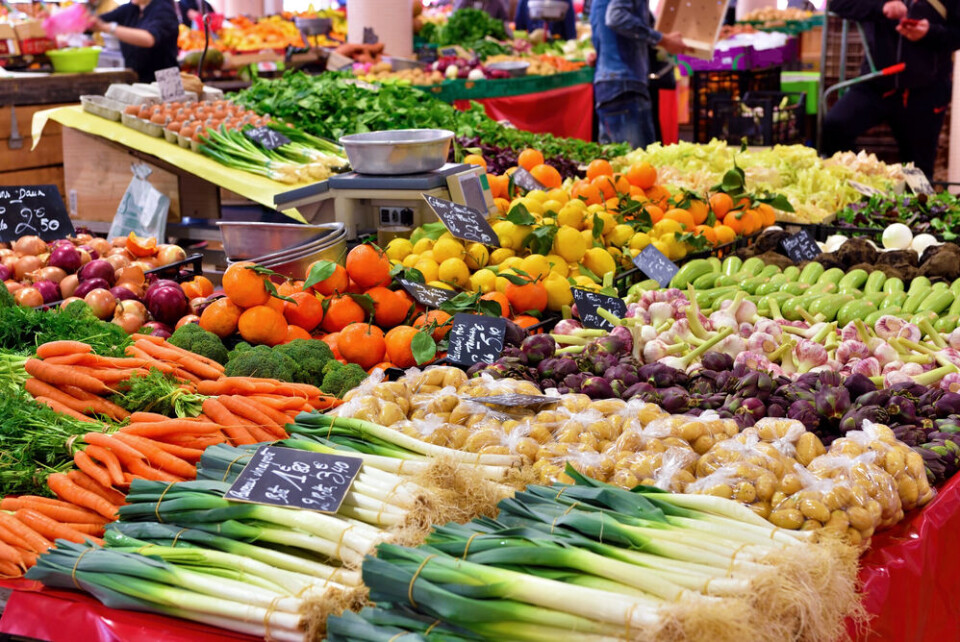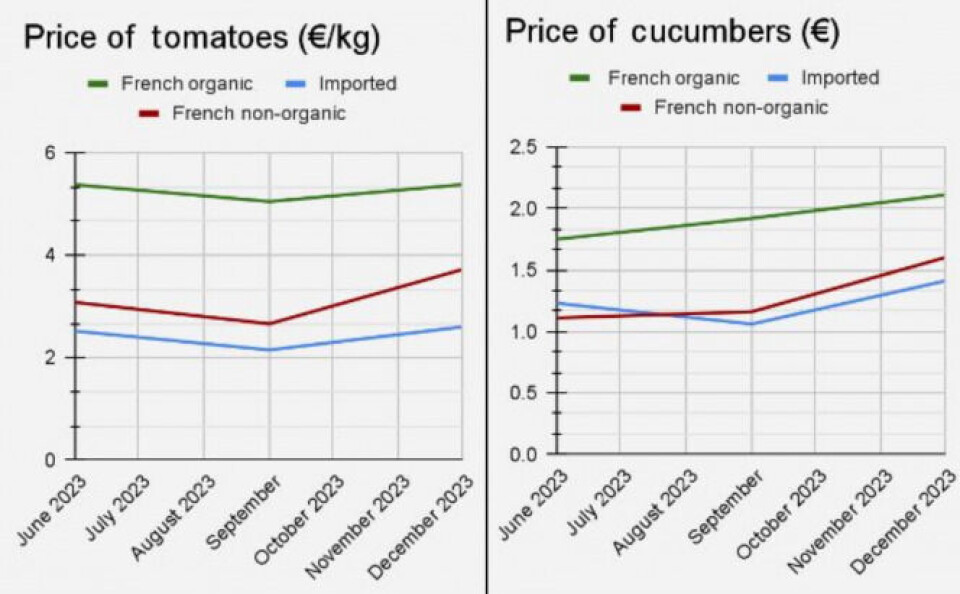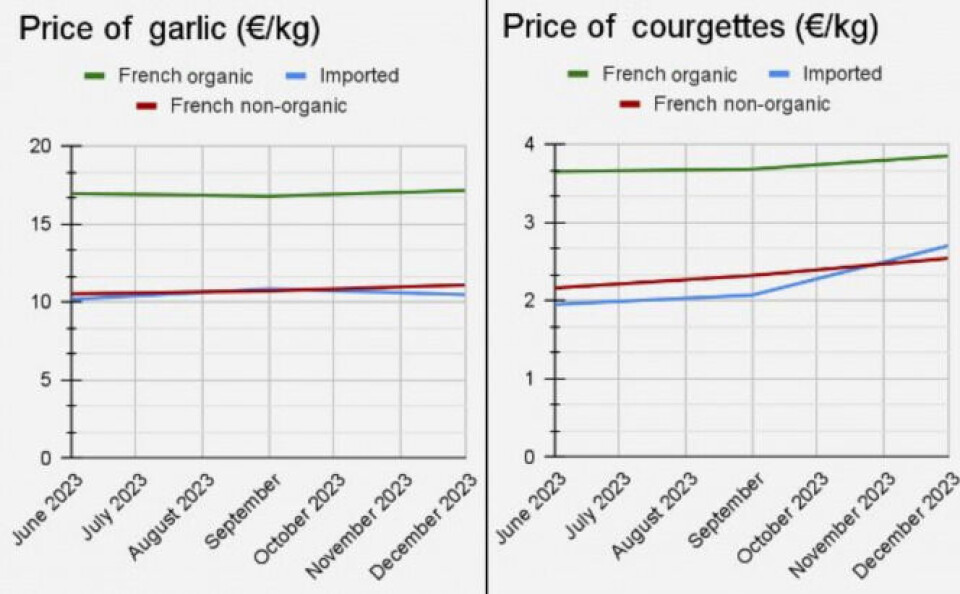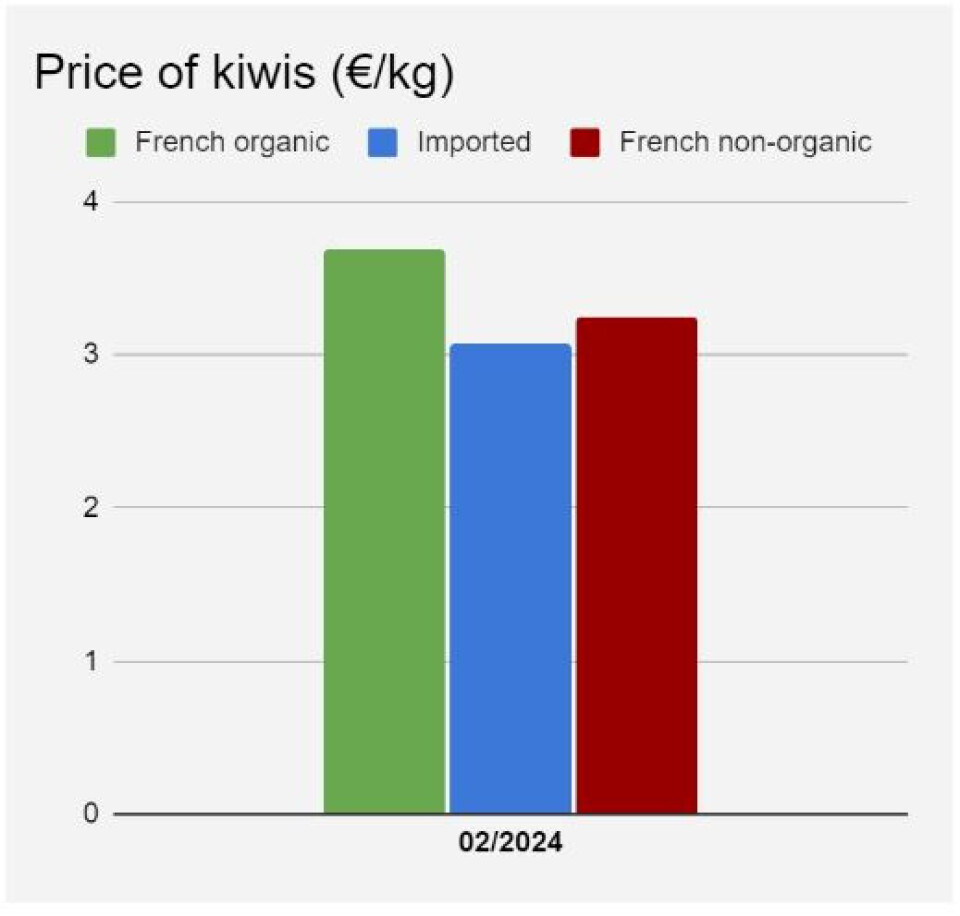-
Discover the unique Chasselas grapes of Moissac
Why this glorious AOP grape is September's must-have fruit
-
Easy-to-eat, juicy wonders: flat peaches are a summer highlight in France
Be sure to enjoy fresh peaches from your local French market this summer
-
Beautiful Loire Valley château gardens celebrate their patron saint
Famous château potagers specialise in the conservation and collection of old vegetable varieties and offer walks and tasting sessions
Fruit and veg prices in France: are imports always cheaper?
We look at official data on prices, including organic options, of tomatoes, courgettes, leeks, cucumbers, garlic, clementines and kiwis

The recent farmer protests raised the question of French food prices, with protesters claiming that they should be paid more for their produce. We look at how the prices of French fruits and vegetables compare to those of imports.
One of the major concessions that the government accorded to farmers in an attempt to defuse the farmer protests was a ‘strengthening’ of the EGalim law that is supposed to guarantee that farmers are paid fairly by distributors.
This will initially come in the form of more inspections in supermarkets to ensure that they are respecting the quotas of French and organic produce on sale.
One of the farmers’ major concerns is that since the French EGalim law does not constrain foreign producers of fruits and vegetables to respect profit margins, they can sell their produce at far lower prices.
However, organic food producers were curiously absent from the protests. Indeed, these producers are opposed to certain of the protesters’ key demands, such as the continued right to use certain pesticides.
Organic producers of French fruits and vegetables also have less competition from foreign imports and sell their produce at higher prices.
How do the prices of French fruits and vegetables compare with those of imports?
The prices of French fruits and vegetables are tracked on a week-by-week basis by the national agricultural watchdog FranceAgrimer based on samples taken from 150 shops around the country.
Its findings show that some items such as carrots and leeks are almost always cheaper from French producers than imports, which is no surprise given the country’s massive production of both.
France is the second largest producer of carrots in the EU after Germany at around 500,000 tonnes annually. It is also the second largest producer of leeks in the EU after Belgium.
However, for vegetables that need more sun, the competition from imports is more fierce.

The price of non-organic French tomatoes and cucumbers is consistently undercut by that of foreign imports, particularly from Spain. Even during the peak season of tomato production, French tomatoes cost 24% more than imported ones.
France grows far fewer courgettes than Spain and Italy, which together account for around 75% of the EU’s total production.

Spain also produces more than ten times more than France does of its national vegetable, garlic.
French fruit production suffers even more than vegetables from the country’s less favourable seasons. Corsican clementines are around 35% more expensive than imported ones, and are more exposed to seasonal price fluctuations, with one kilo costing €4.39 against €2.84 for imports.
Another of the French farmers’ concerns was the prospect of the European Union’s trade agreement with the South American trade bloc Mercosur. They believe this could result in a wave of cheap fruits that could further undercut locally grown produce.
In particular, France’s kiwi production, which struggles against fluctuating prices due to the weather, would be left exposed to competition from South American producers.
Read more:

Leclerc or Lidl: Which is the cheapest supermarket in France?
























